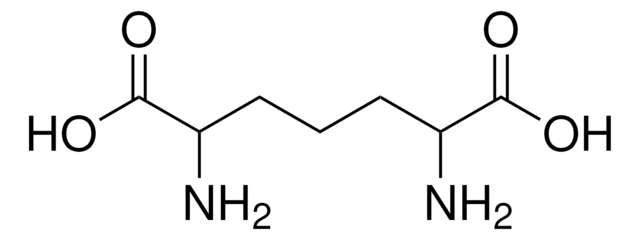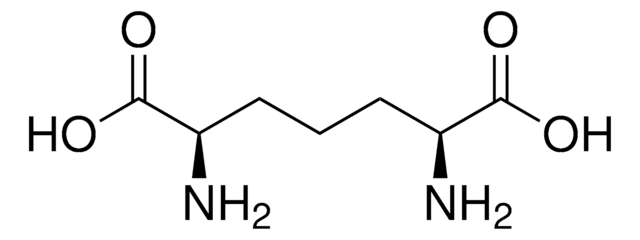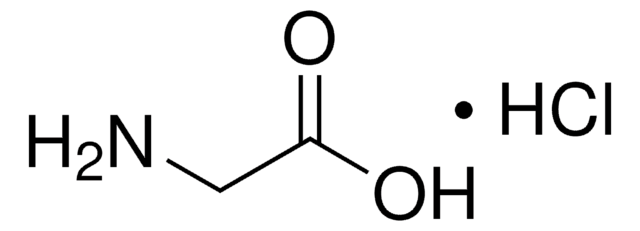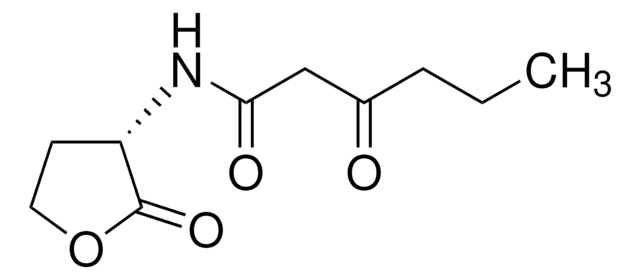92591
DL-2,6-Diaminopimelic acid
≥95% (TLC)
Synonym(s):
rac.-DAP, DL-α,ε-Diaminopimelic acid, DL-2,6-Diaminoheptanedioic acid
About This Item
Recommended Products
Product Name
DL-2,6-Diaminopimelic acid, ≥95% (TLC)
Quality Level
Assay
≥95% (TLC)
form
powder
SMILES string
OC([C@@H](N)CCC[C@H](N)C(O)=O)=O
InChI
1S/C7H14N2O4/c8-4(6(10)11)2-1-3-5(9)7(12)13/h4-5H,1-3,8-9H2,(H,10,11)(H,12,13)/t4-,5-/m0/s1
InChI key
GMKMEZVLHJARHF-WHFBIAKZSA-N
Application
Biochem/physiol Actions
Packaging
Analysis Note
Signal Word
Warning
Hazard Statements
Precautionary Statements
Hazard Classifications
Eye Irrit. 2 - Skin Irrit. 2 - STOT SE 3
Target Organs
Respiratory system
Storage Class Code
11 - Combustible Solids
WGK
WGK 3
Flash Point(F)
Not applicable
Flash Point(C)
Not applicable
Choose from one of the most recent versions:
Certificates of Analysis (COA)
Don't see the Right Version?
If you require a particular version, you can look up a specific certificate by the Lot or Batch number.
Already Own This Product?
Find documentation for the products that you have recently purchased in the Document Library.
Our team of scientists has experience in all areas of research including Life Science, Material Science, Chemical Synthesis, Chromatography, Analytical and many others.
Contact Technical Service








